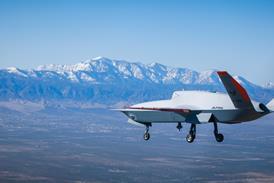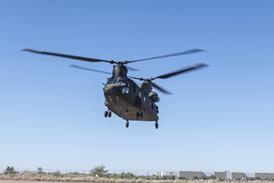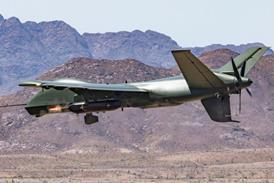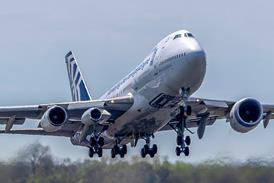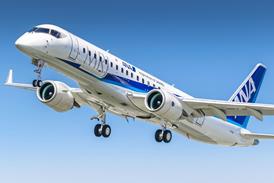The US Defense Department’s 2018 National Defense Strategy, the Pentagon policy that will drive its budget priorities for the next five years, pivoted away from counter-insurgency operations and toward more sophisticated security threats, such as China and Russia.
“It is increasingly clear that China and Russia want to shape a world consistent with their authoritarian model — gaining veto authority over other nations’ economic, diplomatic, and security decisions,” the NDS states.
Defense secretary Jim Mattis’ signature document emphasises China’s potential to leap ahead of US military power by not only rapidly developing technology but practicing “predatory economics” in the region to reclaim the Indo-Pacific. That anxiety echoes industry concerns that restrictions in the Missile Technology Control Regime over American unmanned air vehicle exports could stymie UAV and related technology sales.
The NDS highlighted new technology emerging, including hypersonics and directed energy, from the military industrial base. But Mattis also touched on the fear that commercial technology available to both state competitors and non-state actors would threaten American dominance.
“Terrorists, trans-national criminal organizations, cyber hackers and other malicious non-state actors have transformed global affairs with increased capabilities of mass disruption,” the document states. “Terrorism remains a persistent condition driven by ideology and unstable political and economic structures, despite the defeat of ISIS’s physical caliphate.”
Though the NDS omits hard numbers, the Pentagon is expected to play the long game against China and Russia with sustained investment to thwart its near-peer adversaries. Among its next priorities, the Defense Department ticks off North Korea and Iran, followed by a consolidated effort in its ongoing COIN operations in Iraq and Afghanistan.
The 2018 NDS will lay out plans for the next five fiscal years, which will devote funds to modernizations programmes. Mattis released the NDS against the backdrop of a looming government shutdown and in an address at the Pentagon this week, targeted unreliable funding streams from Congress. US military leaders have repeatedly called on Congress to fund the government and the Pentagon for a full fiscal year, rather than pass a series of short term budgets that derail planning and stop new modernization programmes in their tracks.
Earlier this week, air force leadership warned that another short term budget would slow down development on the next-generation B-21 bomber and block funding for new A-10 wings. Another continuing resolution could worsen the coming nuclear modernisation bow wave, including the replacement for the Boeing AGM-86B air-launched cruise missile (ALCM), which is expected to come to a head in the 2030s. The NDS lists nuclear modernization as its top priority investment, followed by space and cyberspace capabilities, surveillance and reconnaissance, missile defense and autonomous systems.
“To address the scope and pace of our competitors’ and adversaries’ ambitions and capabilities, we must invest in modernization of key capabilities through sustained, predictable budgets,” the document states. “Our backlog of deferred readiness, procurement, and modernization requirements has grown in the last decade and a half and can no longer be ignored.”
Mattis’ strategy also stresses partnerships with existing allies and attracting new partners, a difficult feat for the Pentagon to tackle in Trump’s “America first” era. The president has criticised North Atlantic Treaty Organization allies for not meeting failing to commit funds worth more than 2% of gross domestic product to national security. Building future international partnerships could also prove challenging when Trump has impressed buying and building American, despite his praise for Boeing commercial products like the 787 that are built all over the world. More recently, media reports have indicated the president used harsh language to describe African nations. By contrast, Mattis seeks to fortify the NATO alliance to deter Russia, expand Indo-Pacific partnerships and develop new relationships in Africa.
Source: FlightGlobal.com




